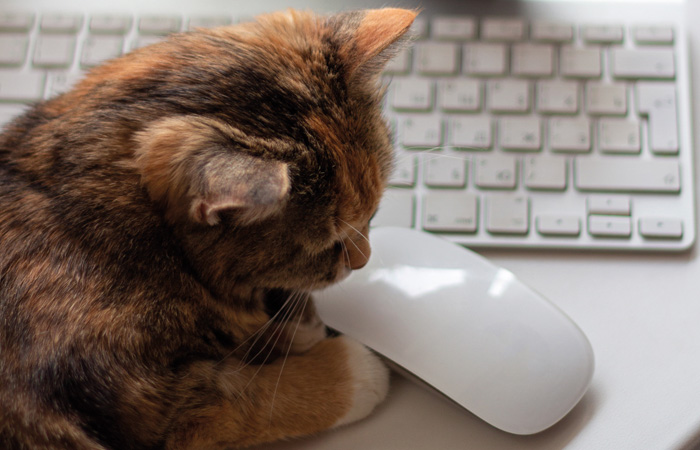Protecting pet health
In Conditions
Follow this topic
Bookmark
Record learning outcomes
From pet parasites to separation anxiety, pharmacy teams can provide advice on a range of issues to support customers’ four-legged friends
With an estimated 50 per cent of UK households counting a furry friend among their numbers, it is no surprise that pet health concerns are common. Luckily, pharmacies are well equipped with products to help pets put their best paw forward.

When customers visit the pharmacy, they might not always expect pet health products to be on sale. This makes it important for pharmacy teams to drive awareness of their pet health range and identify potential customers in this area. If customers are looking for products to help with cat scratches or flea bites, for example, there is an opportunity to let them know about the pet heath offering in the pharmacy. As always, what sets pharmacy apart is the all-important advice and tips that teams can pass on.
Pet peeves
Pets can be affected by a number of parasites – the most common being fleas, ticks and worms. Prevention is better than a cure, so pet owners should establish a regular treatment and prevention routine, where possible, to keep any unwanted visitors at bay.
- Fleas
A common misconception is that fleas are only found on dirty pets, but they can actually affect any pet. Fleas typically cause itching and irritation, but they can also carry tapeworm eggs and sometimes transmit diseases. Infections can happen quickly, as female fleas can lay up to 50 eggs in one day. Pharmacy teams can advise customers to use regular flea treatments on their pets; these are usually applied to the coat and repel or kill fleas on contact.
According to the RSPCA, an estimated 95 per cent of flea eggs live in the environment, not on a pet. Regular cleaning and vacuuming of floors and furniture can therefore help to remove eggs and there are also spray treatments available for the home.
- Ticks
Ticks tend to live in wooded or grassy areas and can affect humans, cats and dogs. If pets brush past a tick, they can latch onto the skin. The charity Blue Cross recommends that pet owners: “Run your hands over your dog’s body when you get back from a walk to check for any lumps or bumps. A tick will feel like a small bump on your pet’s skin”.
Ticks can transmit serious infections such as Lyme disease, which can affect both animals and humans. If customers spot a tick on their pet, they should remove it as soon as possible – there is no pharmacological treatment, physical removal is the only way to deal with them. Ticks should be twisted off, which avoids squeezing the tick and decreases the chance of the pet contracting diseases from the tick. Pharmacy teams can recommend using tweezers or a special tick removal tool to make this easier.
Preventative measures, such as avoiding long grass or other areas where ticks are present, can be effective, although not always practical. Instead, it is a good idea for pet owners to use regular preventative tick treatments on their pets, which are often combined with flea treatments. Pharmacy teams should make sure customers always use a suitable treatment for their pet – owners should never use a medicine that is meant for a dog on their cat and vice versa, as this can be dangerous.
- Worms
Worms can make pets ill and can even be fatal. Pets can pick them up from other animals or from things they eat. If a pet has worms, they may be visible in their vomit, faeces or around the anus.
Using worm treatments regularly is the best way to prevent and treat worms. Pharmacy teams can also recommend regularly disinfecting food and water bowls using an animal-safe disinfectant. Some types of worms can pass from pets to humans, so it is important for people to wash their hands after handling a pet.
Protecting pets
Getting pets vaccinated is essential to protect them from serious infectious diseases. “Pets in the UK have been amazingly well protected from many terrible diseases such as parvovirus, hepatitis, distemper and leptospirosis – all of which used to be endemic here – through the power of vaccination and herd immunity,” says Daniella Dos Santos, junior vice president of the British Veterinary Association, who was quoted in the PDSA Animal Welfare (PAW) Report 2019. But this so-called herd immunity relies on owners working together by getting their pets vaccinated, and the PAW Report found that in 2019 only 66 per cent of UK pets received primary vaccinations when they were young, declining from 84 per cent in 2016.
Part of the reason for this seems to be a lack of understanding around the benefits of vaccinations. The report also found that 16 per cent of pet owners did not vaccinate their pets because they thought it was not necessary. Pharmacy teams can help increase awareness and understanding by educating pet owners on the importance of vaccinations and their benefits. If customers have any concerns about vaccinations, they should be referred to a vet for further information.
Hair of the dog
Grooming pets is not just about making them look good – it is also an opportunity to check for any parasites or lumps on the skin and to make sure their claws are not overgrown. According to Blue Cross, establishing a regular grooming routine “gets them used to this type of handling, and should make visits to the vets much easier”.
When it comes to dogs, the breed will determine how often they need to be brushed. Blue Cross advises that short-haired breeds with smooth coats should be groomed once a week, whereas rough or long-haired breeds will need more regular grooming. It is important for customers not to leave too long between grooming sessions as the fur can get matted, which can make it painful for the dog when brushing.
Breeds with longer fur will need to be clipped to keep their coat manageable. If customers want to do this at home, they should be advised to do their research on tools and methods to protect their pet from injury throughout the process. Customers that choose to take their pet to a professional should ensure they select a reputable groomer.
Cats take care of their own fur, but they still need a bit of extra help from their owners. When cats groom themselves, bits of loose hair get stuck to the tongue, resulting in hairballs. These are common, but very big hairballs can get lodged in the throat and become dangerous. Regular brushing can help to reduce the amount of loose hair, therefore reducing the size of hairballs.
For both dogs and cats, owners should choose a brush that is designed for their pet’s specific type of coat. Getting pets used to grooming at an early age is best, but no matter their age, grooming should be gradually introduced into their routine. Pharmacy teams can advise customers to start with short periods and to reward the pet with treats, making it a positive experience. Pet owners should stop grooming if their pet shows signs of anxiety and try again later.
When it comes to parasites, prevention is better than a cure
Purrfect teeth
Just like humans, pets can experience tooth decay and problems with their gums so regularly brushing their teeth is important. The earlier an owner starts brushing their pet’s teeth, the more easily it becomes part of their routine. However, brushing can be introduced at any age. Pharmacy teams can advise customers to start slowly, getting the pet used to the taste of the toothpaste – which should be specially designed for pets – and having hands near their mouth. Eventually, they can work up to brushing their pet’s teeth a few times a week.
Understandably, for many cat owners, brushing their pet’s teeth may not be possible. “If your cat really won’t tolerate you brushing their teeth, you could try dental gels,” recommends the PDSA. These are not as effective as brushing, but can help to stop dental problems developing.
Dental treats are also good for keeping pets’ mouths clean, but it is important to remind customers not to give their pets too many to avoid them getting overweight.
Pets and Covid-19
There has been some concern that pets can catch Covid-19. Fortunately, the number of pets that have tested positive for Covid-19 is very low. According to the PDSA, only 20 pets had tested positive as of June 2020 and none of these cases were in the UK. “Pet owners should not be concerned that their pets are a risk to them. Pets have a very low risk of contracting the virus and there is no evidence to show that they can pass it on to humans,” says the PDSA.
This is good news for the UK’s pets. However, customers should be mindful that Covid-19 could be carried on their pet’s fur, just like any other surface. In order to prevent the spread of Covid-19, the PDSA suggests that pet owners should:
• Wash their hands before and after handling pets and their food
• Not touch other people’s pets
• Keep pets a safe distance away from other people and their pets.
If customers are displaying Covid-19 symptoms, they should avoid contact with their pets as much as possible, just like any other member of their household.
Anxious animals
During lockdown, many pets have been enjoying extra attention from their owners. But with restrictions easing, customers may be concerned about separation anxiety when they start to return to work. Separation anxiety is common in dogs, but cats can also experience it.
The key is to get pets used to periods on their own. Start by leaving them alone for short periods, slowly building up the amount of time, and reward them with treats when they remain calm. It’s important not to punish pets if they perform anxious behaviours, such as weeing or scratching furniture – this can make their anxiety worse.
The PDSA also recommends the following tips for pet owners to reduce separation anxiety:
Dogs
• Create a safe space for them, such as a crate or enclosed area of the house
• Feeding puzzles can help keep them entertained while alone
• Try playing the radio softly in background – some dogs find this comforting
• Ensure there is someone to walk them during the day.
Cats
• Create a set routine so the cat knows what to expect
• Try pheromone diffusers, which can have a calming effect
• Ensure they have hiding places and high places to escape to
• Puzzle toys can keep them occupied.

